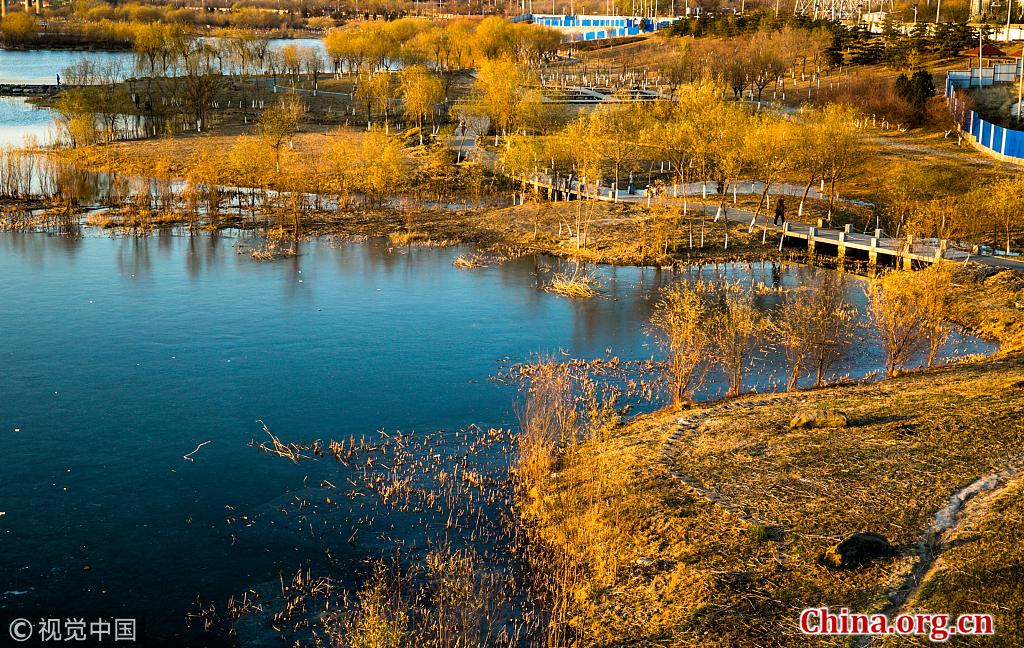Water diversion project alleviates Beijing's drought
 0 Comment(s)
0 Comment(s) Print
Print E-mail China.org.cn, March 23, 2018
E-mail China.org.cn, March 23, 2018
Despite a long dry spell, Beijing has not suffered water shortage, thanks to the South-to-North Water Diversion Project.

Since the central route of the grand water project was put into operation on Dec. 12, 2014, it has channeled to Beijing 1.05 billion cubic meters of water annually.
By March 19, the water diversion project has delivered a total of 3.21 billion cubic meters of water to Beijing, helping to secure the capital's water supplies and bolster its economic development.
According to the municipal bureau of the water diversion project, among the 3.21 billion cubic meters of water diverted from the Yangtze River, 2.2 billion cubic meters of water was used as tap water, 656 millioncubic meters of water was used to replenish large and medium-sizedreservoirs and contingency water reserves in Beijing, and another 358 million cubic meters of water was used to replenish rivers and lakes in the urban area.
Beijing recorded 145 consecutive days without effective precipitationas of March 16, its longest dry spell in 47 years.
According to the latest meteorologicalmonitoring, the majority of the region was hit by modest to moderate levels of drought.
Wang Ji, vice director of the municipal climate center,said Beijing is habitually dry in winter with the precipitation accounting for less than 2 percent of the total all year through.
"The situation is worsethis year," he said. "On the long run, the precipitation won't pick up drastically.”
He said the central route of the water diversion project has largely alleviated Beijing's dry winter.






Go to Forum >>0 Comment(s)